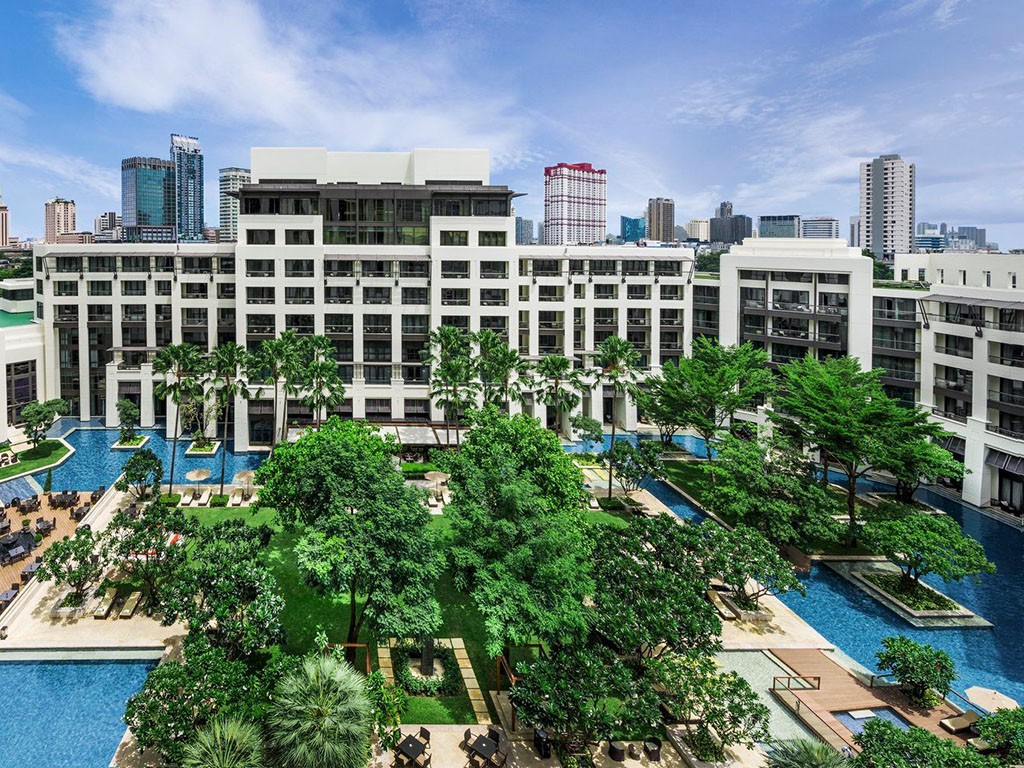“Wat Pa Muet Nok is distinguished by its sandstone Buddha statues and exquisite votive tablets, a unique feature not found in other temples in Kamphaeng Phet.”
Wat Pa Muet Nok Historical Site is situated among forest temples in the northwest of Kamphaeng Phet city walls. It is believed to have been built in the 20th–22nd Buddhist centuries (early to mid-Ayutthaya period) and is likely older than other temples in the Aranyik area, as it is located at the lowest elevation, giving the site a denser, darker forested atmosphere—hence the name "Dark Forest."
The temple holds significant historical and artistic value. It was well-known to the people of Kamphaeng Phet before any other temple in the Aranyik area because of the discovery of beautiful and well-preserved votive tablets and Buddha images, reflecting the skill and attention to detail of the craftsmen of that period. These artifacts are highly valuable for studying early Ayutthaya art and local religious practices.
The founder of Wat Pa Muet Nok was likely a wealthy commoner (not a ruler). Temples built by patrons of this status were intended for community benefit and religious devotion. Despite being relatively small, the temple's artistic details indicate the dedication and faith of its founder.
Key historical structures include:
-
Main Vihara (Assembly Hall): Large structure built of sandstone
-
Main Stupa: Bell-shaped or Lanka-shaped small stupa, now only the base remains
-
Sandstone Pond and Ablution Room: Evidence of monastic practices in a forested setting
The surrounding monk’s quarters are now occupied by local residents. Although the temple is small, the exquisite votive tablets and Buddha images make it an important site for art and cultural study.
Visitors can experience not only early Ayutthaya-era architecture and sculpture but also a peaceful, shaded, and slightly dark forest atmosphere, different from temples in urban areas, while learning about monastic life and forest temple traditions.
How to Get There
By Private Car:
-
From Kamphaeng Phet city, drive along Kamphaeng Phet–Nakhon Chum Road or other main roads connecting to Kamphaeng Phet Historical Park
-
Cross the Ping River Bridge to the Aranyik side
-
Upon entering the historical park, drive straight to the main entrance of the Aranyik area
-
Continue about 1–2 km; Wat Pa Muet Nok will be on the left-hand side. Parking is available within the park
Travel Tips
-
Include in the main route: Visit together with other important temples such as Wat Phra Non and Wat Phra Si Iriyabot
-
Transportation: Renting a bicycle is convenient for exploring multiple ancient sites
-
Observe uniqueness: Pay attention to materials (sandstone) and stupa styles that differ from urban temples
-
Sun protection: Bring a hat, umbrella, and drinking water, as most areas are outdoors
Admission Fee:
- Thai visitors: 20 THB
- Foreign visitors: 100 THB
Opening Hours:
- Open daily
- 08:00 – 16:30 (per Kamphaeng Phet Historical Park hours)




























